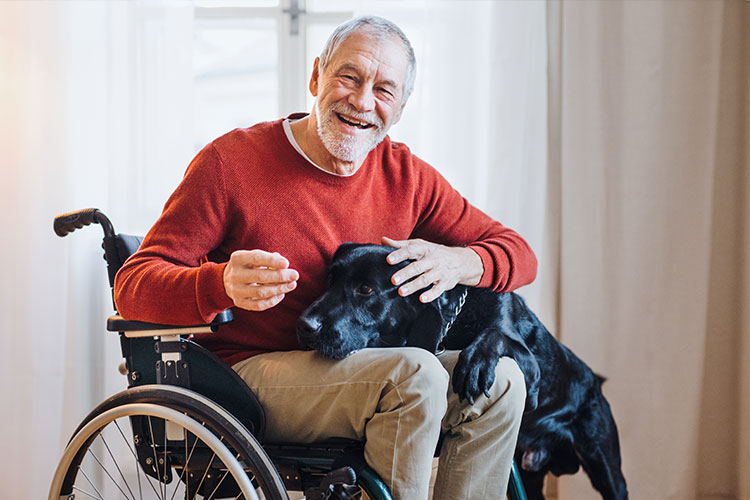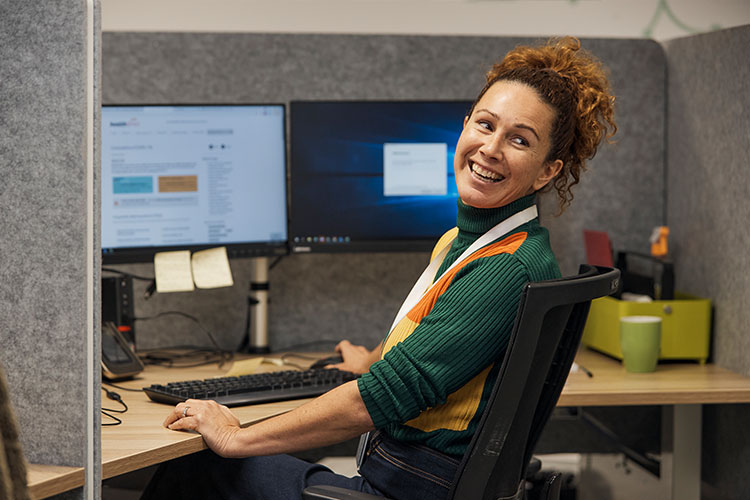For more than 12 months, The Benevolent Society has been engaged by the Department of Health to operate the Thalidomide Support Service. It currently supports over 100 recognised thalidomide survivors to access and receive services that they are entitled to.
To find out more, we speak to Lisa, Connect Partner – Advanced Practitioner, in our National Support Centre to understand the impact of thalidomide in surviving Australians, what supports are available and how she's helped a thalidomide survivor find a new home.
What is Thalidomide?
Thalidomide was originally prescribed to pregnant mothers to relieve nausea during pregnancy in the 1950s and early 1960s. Unknown to primary care physicians, thalidomide wasn’t tested for safety on pregnant women and would later be linked to birth defects including blindness, deafness, shortened/absent limbs or malformed organs.

At the time, Australia lacked a comprehensive process to evaluate the safety of medicines before they were available for use. The connection between thalidomide and birth defects sparked the formation of the Therapeutic Goods Administration in 1989 to ensure that prescription-only medication met specific safety standards for the Australian public. As a result, thalidomide is now a strictly controlled medication that is used primarily in the treatment of leprosy and some cancers but is never prescribed to pregnant women.
Today, thalidomide survivors continue to live with the impacts of the drug.
Our Thalidomide Support Service
Since the creation of the Thalidomide Survivors Support Program in 2019 and being engaged by the Department of Health in 2021, The Benevolent Society has assisted over 85% of known thalidomide survivors in Australia. The Thalidomide Support Services Team can assist with:
- Making claims under the Extraordinary Assistance Fund (EAF) and Health Care Assistance Fund (HCAF)
- Registering with and receiving support from the National Disability Insurance Scheme (NDIS)
- Accessing assistance from other Australian government, state or territory government or community services and schemes
- Improving the navigation to access relevant information and services
- Navigating multiple sectors including health, housing, employment, transport and everyday living
- Accessing information and referrals to services and programs

To receive support, you must be a recognised Australian thalidomide survivor, registered with the Australian Thalidomide Survivors Support Program and be eligible for Medicare.
Lisa in our National Support Centre says that “the program was put into place by the Federal Government to improve survivors’ quality of life and meet their specialised needs.”
“No program can ever make up for the lifetime of hardship and suffering, but we’re here to support in any way that we can,” says Lisa
Assisting Kenneth with Finding a New Home
Kenneth* is a thalidomide survivor who had been living in his current social housing for over 10 years. He contacted the Thalidomide Support Service for assistance, as he was looking for a new dwelling that better fit his needs as a person with disability and was also not yet an NDIS participant and wanted support with the application.

"Kenneth’s situation isn’t uncommon amongst thalidomide survivors,” says Lisa. “It can be tricky to understand what support is available, and once you’re ready to engage it can be daunting trying to navigate the system.”
“I help guide my clients and connect them to appropriate services that are best suited to their needs.”
Lisa connected Kenneth with a local disability advocate who was not only experienced in both disability housing and the NDIS but also thalidomide injury.

“I did a lot of research to find the most suitable support for him, after which I facilitated a call with the identified disability advocate and Kenneth,” explains Lisa.
This was a key turning point in Kenneth’s case. Lisa used this call and subsequent conversations to assess whether Kenneth and the proposed advocate would be a good fit, and it was.
Kenneth has now identified a suitable property that he’s looking forward to moving into and is in the process of applying for a transfer, supported by the disability advocate that Lisa identified.

To access this service, please call our Support Centre on 1800 236 762 or contact our Support Service directly at [email protected]
To find out more about the Thalidomide Support Service, visit our page here.
*Name has been changed for privacy